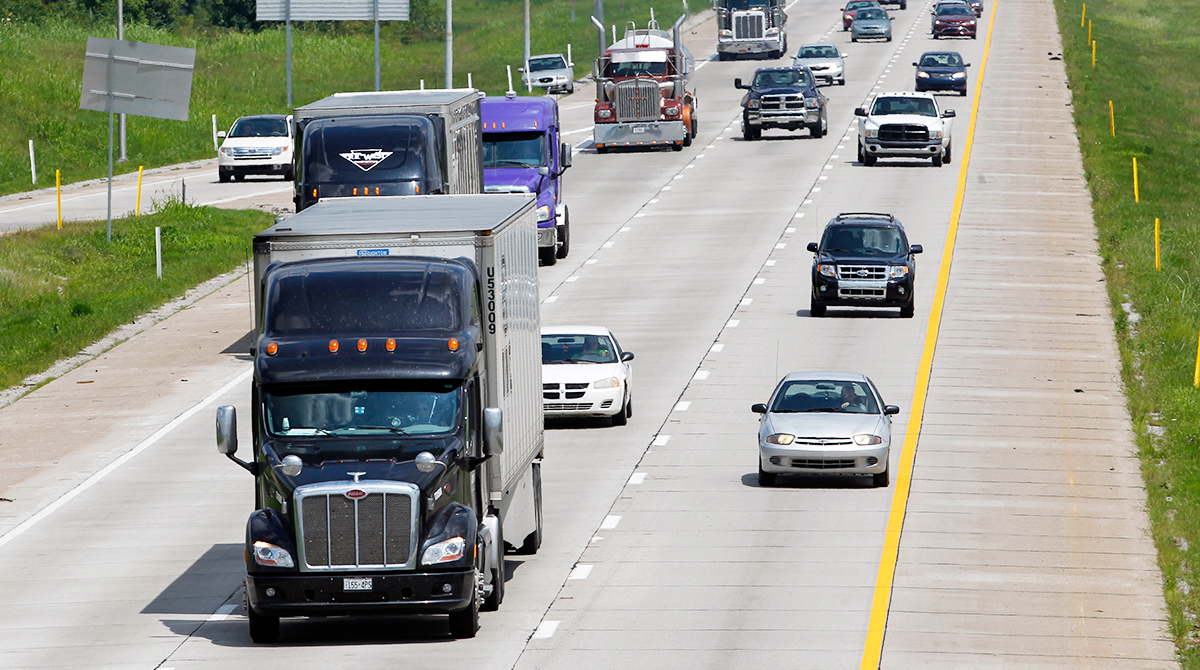
Short Haul Trucking
Typically, when you think of trucking, you think of semi-trucks and trailers, the big rigs you see running down the highway. Trekking all over the country. This is usually referred to as long haul trucking or over the road trucking. The drivers of these trucks drive long distances, usually all over the country.
However, trucking also includes straight trucks, dump trucks, and even small semis pulling small trailers. These types of trucks are typically used on what is referred to as short haul trucking. Examples of short hauling might be, for example, hauling grain, hauling gravel, hauling cement or asphalt. For a driver, who hauls freight, there can be pros and cons to short hauling. I will get to that shortly.
For a truck owner, one of the cons is trying to find dispatch software that relates to short haul. A place where you can enter or import your tickets, pay your driver and bill your customer. Fortunately, for you, TMS Digital has just that. Our TMS Tickets program allows you to set up jobs (templates) for repetitive runs to a job site, so you do not have to reenter the same information each time. Easy entry screens, driver pay calculated automatically and invoices customized to fit your forms. Plain paper format, available, too.
TMS Digital Tickets has been helping our customers, for over 30 years, keep track of their short hauling needs. Nevertheless, let us get back to short hauling and the pros and cons.
Pay
A quick spin through the Indeed.com job listings for dump truck drivers shows that dump truck driver might make between $24 – $26 an hour. Some job listings show up to $80,000 a year. Maybe I should become a dump truck driver!
ELD
Although short-haul drivers are exempt from the ELD mandate, they are still required to keep an accurate account of the HOS (hours of service) records by recording working hours driven and monitoring compliance with the 150 air-mile radius limit for short-haul operations.
The short-haul exemption is a limited exemption from the Record of Duty Status and ELD (Electronic Logging Device) requirements as well as the 30-minute rest break requirements CMV (commercial motor vehicle) drivers. To qualify for the exemption, drivers must work within certain conditions.
Who qualifies for short haul exemption?
Class A and B CDL drivers qualify as short-haul if you: drive only within a 150-air-mile radius and do not drive more than 14 hours at a time. The new ‘150 air mile’ rule exempts a driver with a commercial driver’s license from completing a daily log and having supporting documents within 150 air miles of their daily starting location. According to the FMCSA, “drivers who use the short-haul, timecard exceptions are not required to keep records of duty status (RODS) or use ELDs.”
The upside
There are definitely some advantages of being a local driver. Typically, you are home every night, allowing you to spend time with your family. Oftentimes, you do the same routes, offering you familiarity with the roads. In addition, driving in familiar areas is usually less stressful. Some disadvantages might be if you are on the lower end of the pay scale, you might find yourself picking up extra trips at the end of the day to make more money. This reduces time at home with your family. Usually you have regular hours, Monday through Friday.
So what is the downside?
Short haul drivers might also find themselves driving in the city more so than an OTR driver would. That can mean dealing with traffic. That is never fun! And, it is usually repetitive, running the same route, over and over. Moreover, some jobs are seasonal, which means you might not have work during some parts of the year.
TMS Digital Tickets
So how can we help? Well, let me tell you. If you are an owner operator/driver, you need a way to keep track of your loads. Our built in billing option lets you print invoices that can be customized to your specs. When you post that billing, our accounting link interface lets you create postings that can be imported into most of the popular accounting programs, including QuickBooks.
If you own several trucks and employ drivers, the driver pay is handily calculated for each ticket, where you pay flat rate, commission, by the mile or ton, or other. The built in Settlements option in Tickets helps you keep track of what tickets have been paid, any advances or adjustments to pay and like our billing option, interfaces through our accounting link interface with most leading accounting packages. Easily post and import your transactions. And we all like easy! If you would like to learn more or see a demo of Tickets, click the Contact us button. We’d love to show you around!



